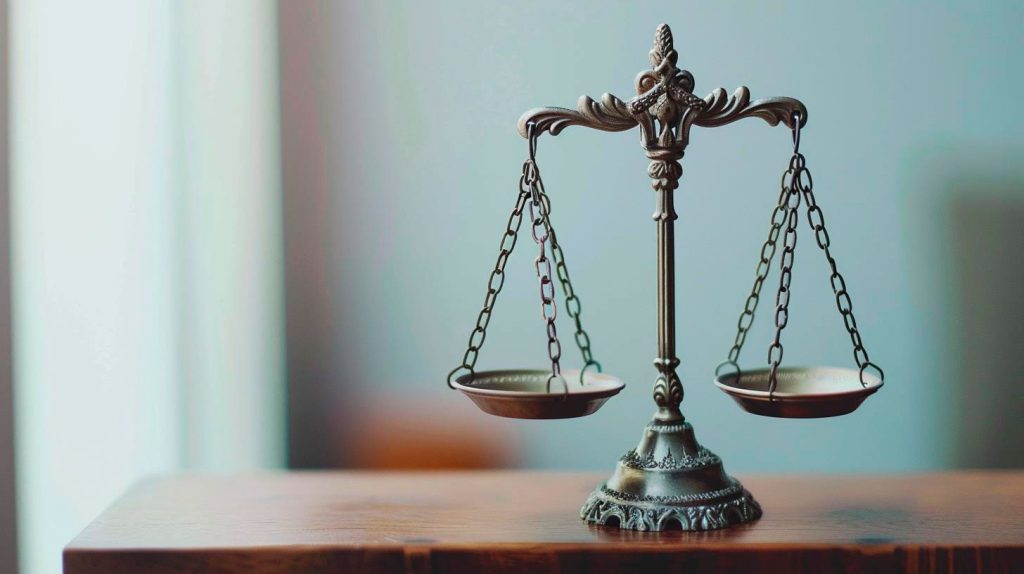
Seeking Professional Help to Safeguard Your Credit and Financial Stability
Understanding the Importance of Credit and Financial Stability
Credit and financial stability are essential components of our overall financial well-being. A good credit score not only determines your ability to secure loans and credit cards but also plays a significant role in determining the interest rates you receive. A strong financial foundation can provide you with peace of mind and security, allowing you to navigate unforeseen financial challenges with confidence.
However, maintaining good credit and financial stability can be challenging, especially when faced with issues such as debt, bankruptcy, or identity theft. In such situations, seeking professional guidance from a lawyer who specializes in credit and financial matters can help you navigate the complex legal landscape and protect your financial interests.
The Benefits of Hiring a Lawyer for Credit and Financial Matters
- Legal Expertise: A lawyer specializing in credit and financial matters has the knowledge and expertise to navigate the legal complexities surrounding credit laws, debt collection practices, and bankruptcy proceedings. They can provide you with personalized advice and guidance tailored to your specific financial situation.
- Protection of Rights: When faced with debt collectors, creditors, or credit bureaus, it can be overwhelming to navigate the legal processes on your own. A lawyer can protect your rights, advocate on your behalf, and ensure that your interests are safeguarded throughout the legal proceedings.
- Debt Relief Options: A lawyer can help you explore debt relief options such as debt settlement, debt consolidation, or bankruptcy, depending on your unique financial circumstances. They can negotiate with creditors on your behalf to reach a favorable resolution and help you regain control of your finances.
- Identity Theft Protection: Identity theft is a prevalent threat in today’s digital age, and it can have devastating consequences on your credit score and financial stability. A lawyer can help you navigate the legal processes involved in identity theft cases and work towards restoring your credit and financial standing.
Industry Statistics on Credit and Financial Stability
According to a recent study by the Consumer Financial Protection Bureau, approximately 20% of Americans have errors on their credit reports that could impact their credit scores. This highlights the importance of regularly monitoring your credit report and taking proactive steps to address any discrepancies that may arise.
Furthermore, the Federal Trade Commission reports that identity theft affects millions of Americans each year, with financial losses totaling billions of dollars. Victims of identity theft often face long-lasting consequences on their credit score and financial stability, underscoring the need for proactive measures to protect against identity theft.
Seeking professional help from a lawyer specializing in credit and financial matters can provide you with the necessary expertise and guidance to safeguard your credit and financial stability. By enlisting the help of a legal professional, you can navigate the complexities of credit laws, debt collection practices, and identity theft cases with confidence and peace of mind.
Don’t wait until financial challenges arise to seek professional help. Protect your credit and financial stability by partnering with a lawyer who can advocate on your behalf and help you navigate the legal processes involved in credit and financial matters. Your financial future is worth investing in, and seeking professional guidance can make all the difference in safeguarding your financial well-being.
Remember, your credit score and financial stability are invaluable assets that require protection and vigilance. By seeking professional help from a lawyer specializing in credit and financial matters, you can proactively address any challenges that may arise and secure your financial future for years to come.
Tips for Protecting Your Credit During a High-Conflict Divorce
It is essential to take proactive steps to protect your credit during this difficult time. Here are some tips to help you safeguard your financial well-being during a high-conflict divorce:
1. Monitor Your Credit Report Regularly
One of the first steps you should take is to monitor your credit report regularly. By keeping an eye on your credit score and report, you can identify any unusual activity or unauthorized charges that may indicate financial abuse by your ex-spouse. You can request a free credit report from each of the three major credit reporting agencies – Equifax, Experian, and TransUnion – once a year.
2. Close Joint Accounts
If you have joint accounts with your ex-spouse, it is crucial to close them as soon as possible to prevent any further financial obligations or liabilities. Close joint credit cards, bank accounts, and other shared accounts to avoid incurring any new debts that could negatively impact your credit score.
3. Establish Your Own Credit
If you do not already have individual credit accounts in your name, now is the time to establish your own credit. Open a new credit card or take out a personal loan to start building your credit history. Having your own credit accounts can help you maintain financial independence and protect your credit in case of any disputes with your ex-spouse.
4. Communicate with Creditors
It is essential to communicate with your creditors and inform them of your divorce situation. Let them know about any changes in your financial circumstances and provide them with necessary documentation to support your claims. This can help prevent any negative marks on your credit report due to missed payments or delinquent accounts.
5. Consult with a Financial Advisor
Seeking guidance from a financial advisor or a credit counselor can be beneficial during a high-conflict divorce. They can help you create a realistic budget, prioritize your financial goals, and develop a plan to rebuild your credit after the divorce. A professional can provide you with valuable advice on managing your finances and protecting your credit.
6. Avoid Using Your Credit for Emotional Expenses
During a high-conflict divorce, it can be tempting to seek comfort in retail therapy or emotional spending. However, using your credit cards for unnecessary expenses can lead to financial strain and harm your credit in the long run. Avoid making impulsive purchases and focus on maintaining financial stability during this challenging time.
7. Keep Records of Financial Transactions
Keep detailed records of all financial transactions, including bank statements, credit card statements, and receipts. Documenting your expenses and income can help you track your spending, identify any discrepancies, and provide evidence in case of any financial disputes with your ex-spouse. Organizing your financial records can also simplify the divorce process and protect your credit.
8. Consider Credit Monitoring Services
If you are concerned about identity theft or unauthorized access to your financial accounts during a high-conflict divorce, consider enrolling in credit monitoring services. These services can alert you to any suspicious activity on your credit report and help you take immediate action to protect your credit information. Investing in credit monitoring can add an extra layer of security to safeguard your financial well-being.
Protecting your credit during a high-conflict divorce is crucial for your financial stability and future well-being. By following these tips and taking proactive measures, you can safeguard your credit score, avoid unnecessary debt, and navigate the complexities of divorce with confidence. Remember to prioritize your financial health and seek professional support if needed to protect your credit during this challenging time.
Common Credit Pitfalls to Avoid During Divorce Proceedings
In this article, we will discuss some common credit pitfalls to avoid during divorce proceedings to help you protect your financial future.
Not Closing Joint Accounts
One of the most common credit pitfalls during a divorce is failing to close joint accounts. Even if you and your spouse have agreed on how to divide your debts, leaving joint accounts open can still pose a risk. If your ex-spouse misses a payment or maxes out a credit card, it can negatively impact your credit score. To prevent this from happening, make sure to close joint accounts or remove your name from them and open individual accounts in your name.
Ignoring Credit Reports
During a divorce, it’s easy to get caught up in the legal aspects and overlook your credit report. However, ignoring your credit report can be a costly mistake. Make sure to regularly monitor your credit report to check for any errors, fraudulent activity, or accounts that you were not aware of. By staying on top of your credit report, you can catch any issues early on and take steps to address them.
Forgetting to Refinance Mortgage
If you and your spouse own a home together and one of you plans to keep the house, it’s crucial to refinance the mortgage. Failing to do so can result in both parties being held responsible for the mortgage, even if one person is living in the house. This can impact your credit score if your ex-spouse misses a payment. Refinancing the mortgage in the name of the person keeping the house can help protect both parties’ credit scores.
Not Updating Information with Creditors
Another common credit pitfall during a divorce is failing to update your information with creditors. Make sure to notify your creditors of your change in marital status, address, and other important information. This can help prevent any potential issues, such as missed payments or communication errors, that could negatively impact your credit score. Keeping your creditors informed can help you stay on top of your finances during this challenging time.
Underestimating the Impact on Credit Score
Finally, one of the biggest credit pitfalls to avoid during divorce proceedings is underestimating the impact it can have on your credit score. Divorce can lead to financial instability, which can result in missed payments, increased debt, and other factors that can lower your credit score. By being proactive and taking steps to protect your credit during a divorce, you can minimize the negative impact on your credit score and set yourself up for a stronger financial future.
Divorce is a complex and emotionally challenging process, and it’s essential to consider the financial implications, including the impact on your credit score. By avoiding common credit pitfalls during divorce proceedings, such as not closing joint accounts, ignoring credit reports, forgetting to refinance the mortgage, not updating information with creditors, and underestimating the impact on your credit score, you can protect your financial future and ensure a smoother transition into post-divorce life. Remember to stay informed, stay proactive, and seek professional advice if needed to navigate the complexities of divorce and credit effectively.













That’s right! Keeping your finances separate from your ex’s can definitely help protect your credit score. And don’t forget to close joint accounts to avoid any future damage!
Unfortunately, late payments on joint accounts can impact both parties’ credit scores, regardless of who is at fault. It’s essential to address these issues proactively to minimize any damage to your credit.
Hi everyone, I’m concerned about my credit score taking a hit if my ex stops making payments on our mortgage. Any advice on how to handle this situation?
It’s crucial to ensure that your ex is held responsible for making payments on joint debts like a mortgage. Consider negotiating a settlement or taking legal action to protect your credit score in case of default!
Girl, I feel you! My ex totally screwed up my credit during our divorce. Make sure to monitor your credit report regularly and freeze your credit if you think your ex might try to mess with it!
Hey, I’ve heard that closing joint credit accounts during a divorce can help protect your credit score. Is that true?
Hey guys, I heard opening a separate bank account in just your name can help safeguard your credit in a divorce. Is that true?
Does anyone know if late payments on joint accounts during a divorce can affect your credit score even if your ex is the one at fault?
Ugh, my ex is refusing to pay our joint debts and I’m worried it’s going to impact my credit. What should I do?
OMG, I’m going through a high-conflict divorce right now and I’m so worried about my credit score! Any tips on how to protect it?
Yes, closing joint credit accounts can be a smart move to safeguard your credit score in a high-conflict divorce. Make sure to open individual accounts and monitor your credit report regularly to avoid any surprises!
You should consult with a lawyer ASAP to figure out your options for dealing with joint debts in a divorce. Protect yourself and your credit by taking legal action if necessary!